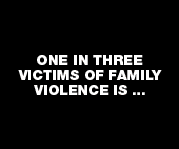Male Health in Australia - Men’s Health Week 2016
 Thursday, June 16, 2016 at 9:00AM
Thursday, June 16, 2016 at 9:00AM 
With special guest:
- Dr Gary Misan
The health of Australians in terms of life expectancy is good by world standards.
However when we examine life expectancy it is often forgotten in these times of women demanding greater empowerment that males in Australia die more frequently than females in all age groups. Male life expectancy is 4.6 years less than females and the gap has increased not declined since 1900. In remote and very remote areas average male life expectancy is 4 years lower than in more populated areas. For Aboriginal males the average life expectancy is only 59 years a full 6 years less than for Aboriginal females. Furthermore male health extends beyond the purely biological aspects and encompasses a range of issues affecting the health and wellbeing of men and boys.
Against this background the Government introduced Australia’s first Men’s Health Policy in 2010, some 30 years after the Women’s Health Policy appeared. We ask our guest today Dr Gary Misan what changes have we seen since the 2010 introduction of the Policy and to what extent has it been picked up at the state and regional level.
The efforts Gary and his colleagues are making to improve male health outcomes have not always been appreciated. Some in the community may say without thinking about it too much that the poor outcomes are just what should be expected because of “men behaving badly”. Dr Misan takes this statement head on.
A real obstacle is the societal and cultural expectation placed on our young men to “be a man” meaning to be strong, resilient, a problem solver and self-sacrificing for family and country. Against this background men are sometimes reluctant to seek medical treatment in the traditional setting of a doctor’s surgery often leaving proper medical treatment until all other avenues have been exhausted and this may be too late. We can do something about this very quickly by making medical services more male-friendly. The societal changes may take a little longer to implement.
Dr Misan tells us about the benefits of Men’s Sheds, an Australian initiative now spreading across the world. It is not well-known that the dangers of losing social contact are roughly equivalent to recognised dangers such as smoking. When men retire they often lose their only social outlet and think they have nothing to do or contribute. This becomes a huge risk that can be successfully managed by joining the local Men’s Shed. Men can then once again do useful work and talk with their peers in an unthreatening way about personal issues.
There is consideration being given to extending the role of Mens Sheds to provide a meeting place for Indigenous men that would be culturally sensitive. There may also be the opportunity to provide a medical service which would be in a male-friendly setting where issues such as depression could be managed in a more sensitive and less time-dependent way than in the surgery of the local bulk-billing GP.
At Dads on the Air we support the work of Dr Misan. We hope that Men’s Health Week 2016 will lead to an ongoing concern for male health and recognition of all the good done for our society by men and boys.
Dr Gary Misan
Gary Misan PhD is a Director of the Australian Institute of Male Health & Studies.
Dr Misan is a Senior Research Fellow at Adelaide University in the Rural and Clinical School. His current activities and research interests include: male health, male health policy, men’s sheds, osteoporosis and program evaluation.
Dr Misan is a founding member and public officer for the South Australian Men’s Sheds Association, member of the Australian Men’s Health Forum, and President of the Whyalla Men’s Shed. He is also the National Rural Health Alliance representative for the TenToMen National Longitudinal Study in Male Health Community Reference Group.
Song selections by our guest: I Stand in Wonder by Joe Cocker & Slice of Heaven by Dave Dobbin

